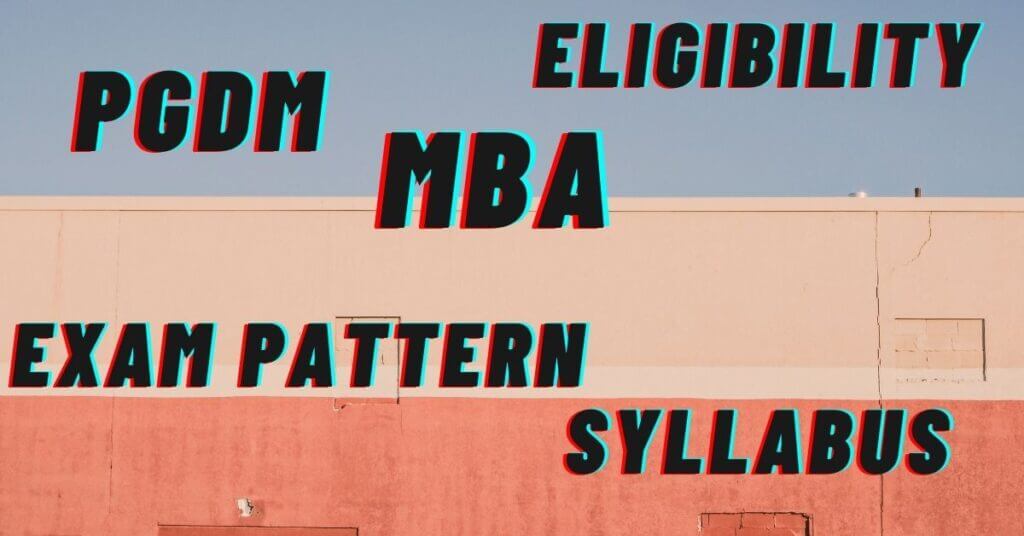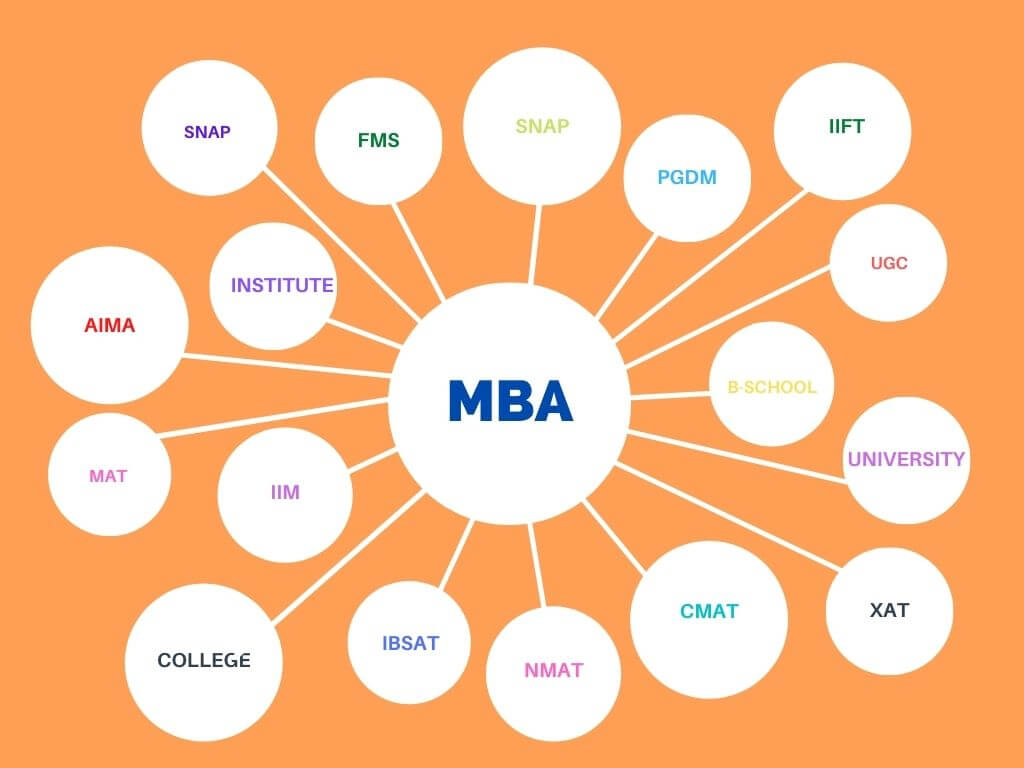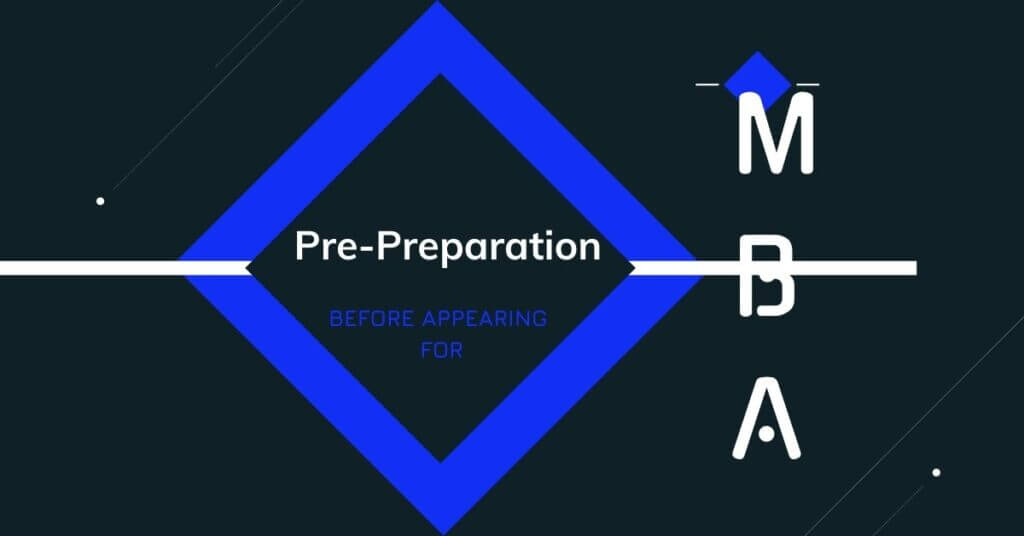Brainstorming- Is It A Must Exercise For Future MBA Graduate
What do you think when it comes to becoming an MBA Graduate?
There is a natural tendency to follow the crowd.
But the question is whether you should always follow the crowd?
At times it may work.
But there is a wise saying that “ The person who follows the crowd will go no further than the crowd”.
This holds very true for pursuing and getting an MBA graduate degree.
The buzz for MBA graduates is so powerful, that the aspirants go and dive into it without even knowing, the in and out MBA graduate program.
You may have often come across the saying that “ If you have nothing to do, then go and get an MBA degree”.
Everything comes with its Goodness and Badness.
It all depends on how to go with it.
Therefore, it is very important to analyze both sides and then jump to any conclusions.
The same holds for “ The Future MBA Graduate Students”.
Before you make a mind to become an MBA Graduate, it is very important and imperative to brainstorm yourself.
This article will give you an insight into the MBA graduate program in respect to different entrance examinations, exam patterns, syllabus, list of B-Schools, and the plan and strategy to crack the CAT exam.
Master of Business Administration commonly known as MBA is considered as among one of the most popular graduate degrees in the world. This Comes with various advantages as well as some disadvantages.
Among the benefits of an MBA degree, the Job Security, High Pay Packages, Increased Leadership possibilities, Discover different Careers, Expands Entrepreneurship possibilities, Increased Professional Network, and many more.
MBA Entrance Examinations
Gateway for an MBA degree comes with some of the most promising entrance examinations. Future MBA aspirants will have to go through these exams as mandatory screening steps.
Some of the highly sought out entrance examination for MBA graduate degree are mentioned below:
National Level MBA Entrance Exam
- CAT
- CMAT
- MAT
- XAT
- NMAT
- SNAP
- ATMA
- GMAT
State Level MBA Entrance Exam
- MAH-CET
- PGCET
- TSICET
- KMAT
- TANCET
Some of the other Entrance examinations are IBSAT, IRMASAT, IIFT, FMS, etc.
CAT Notifications, Exam Pattern & Syllabus
Common Admission Test, commonly called CAT is a national-level common aptitude test conducted for admission to management courses in the Indian Institute of Management and other top B-schools across India.
Indian Institute of Management started this exam to select the students for business administration programs MBA or PGDM).
This exam is conducted every year by anyone IIMs based on the rotation policy.
Different Courses offered in IIM
There are different courses offered by IIMs namely the Post-graduate, Doctoral, and Executive education programme.
Some of the institutes even offer Fellowship Management Program (FPM) which is equivalent to Ph.D. But their flagship program is two years residential post-graduate program.
Find below the list of courses offered by IIM.
Course Name |
Degree |
| Post Graduate Program in Management | PGP |
| Post Graduate Program in Management in Food and Agriculture Management | PGP-FAM |
| Post Graduate Program in Management in Enterprise Management | PGPEM |
| Post Graduate Program in Management in Public Policy Management | PGPPM |
| Executive Post Graduate Program in Management | EPGP |
| Post Graduate Program in Management in Sustainable Management | PGPSM |
| Post Graduate Program in Management in Management for Working Executive | PGPWE |
| Post Graduate Program in Management in Business Management | PBPBM |
| Fellow Program in Management | FPM |
Highlights of CAT Examination
Features of CAT Exam |
Details |
| Exam Name | Common Admission Test (CAT) |
| Conducting Body | Indian Institute of Management (IIM) |
| Exam Level | National |
| Exam Frequency | Once a year |
| Exam Mode | Computer-Based (Online) |
| Exam Pattern | MCQ and Non-MCQ Format |
| Exam Duration | 3 hours |
| Exam Syllabus | · Verbal Ability & Reading Comprehension (VARC)
· Data Interpretation & Logical Reasoning (DILR) · Quantitative Aptitude (QA) |
| Exam Language | English |
| Exam Purpose | Admission into IIMs, SPJIMR, MDS, FMS, IMT, and other top B-Schools. |
| Courses Offered | MBA-PGDM |
| Number of IIM | 20 |
| Number of Registration | 2 Lakh+ |
| Official Website | https://iimcat.ac.in |
CAT EXAM – Proposed Month
Event |
Tentative Month |
| CAT Notification | July |
| CAT Admit Card | October |
| CAT Exam | November |
| CAT Result | January |
Eligibility Criteria of CAT Exam

- Age limit of CAT Exam: There is no age limit set for appearing in the CAT exam.
- Educational Qualification of CAT Exam
The candidate must have a bachelor’s degree or its equivalent from a recognized University or equivalent with a minimum of 50% or equivalent CGPA (45 % or equivalent CGPA for SC, ST, PWD/DA category) aggregate mark.
Candidates who have completed a professional course like CA/CS/ICWA with a minimum percentage are also eligible to appear for the exam.
Appearing and result-awaited candidates are also eligible to appear for the exam.
CAT Exam Pattern
Particulars |
Details |
| Exam Mode | Computer-Based Exam (Online) |
| Number of Sections | 3 |
| Duration of the exam | 3 hours.
4 hours for PWD Category |
| Sectional duration of the exam | 60 minutes.
80 minutes for PWD Category |
| Number of questions | 100 |
| Marking Scheme | 3 marks awarded for every correct answer.
1 mark deducted for every wrong answer |
| Panel color indication | Red: Question not answered nor marked as review.
Green: Question answered but not marked as review.
Grey: Question neither viewed nor visited.
Violet: Question marked for review but not answered.
Violet with green tick: Question marked for review and answered |
CAT Exam Section-wise |
||||
Section |
TITA Question |
MCQ Question |
Total Question |
Duration |
| Verbal Ability & Reading Comprehension (VARC) | 7 | 27 | 34 | 60 minutes (80 minutes for PWD) |
| Data Interpretation & Logical Reasoning (DILR) | 8 | 24 | 32 | 60 minutes (80 minutes for PWD) |
| Quantitative Aptitude (QA) | 11 | 23 | 34 | 60 minutes (80 minutes for PWD) |
| Total | 74 | 26 | 100 | 3 hours (4 hours for PWD) |
Best B-School
Getting into The Holy Trinity of the Indian Institute of Management is a dream come true experience.
| IIM Ahmedabad | IIM Bangalore | IIM Calcutta |
If you cannot make it in the top three Indian Institute of Management.
The next best are the IIM Bangalore, IIM Lucknow, IIM Ahmedabad, IIM Calcutta, IIM Kozhikode, IIM Indore) generally referred to as “BLACKI”.
| OLD-Indian Institute Management | |
| Name of Institute | Founding Year |
| IIM Rohtak | 2009 |
| IIM Ranchi | 2010 |
| IIM Raipur | 2010 |
| IIM Trichy | 2011 |
| IIM Kashipur | 2011 |
| IIM Udaipur | 2011 |
Baby IIM: Out of 20 IIMs, Newly 7 are called the baby IIMs.
| BABY- Indian Institute Management | |
| Name of Institute | Founding Year |
| IIM Amritsar | 2015 |
| IIM Bodh Gaya | 2015 |
| IIM Nagpur | 2015 |
| IIM Sambalpur | 2015 |
| IIM Sirmaur | 2015 |
| IIM Visakhapatnam | 2015 |
| IIM Jammu | 2015 |
Top B-school except for IIMs
- Faculty of Management Studies (FMS), Delhi accepts the CAT score and the course offered is MBA with an intake of 287 seats.
- S.P. Jain Institute of Management & Research (SPJIMR), Mumbai accepts CAT, XAT, GMAT scores and offers a PGDM course with an intake of 240 seats.
- Xavier School of Management (X.L.R.I), Jamshedpur accepts XAT, GMAT score and offers a PGDM course with an intake of 180 seats.
- Jamnalal Bajaj Institute of Management Studies( JBIMS), Mumbai accepts MAH-CET, CAT, CMAT, MAT, ATMA offers MMS courses with an intake of 120 seats.
- Indian Institute of Foreign Trade (IIFT), New Delhi accepts IIFT scores and offers MBA courses with an intake of 420 seats.
- Symbiosis Institute of Management, Pune accepts SNAP and offers an MBA course with an intake of 180 seats.
- Narsee Monjee Institute of Management Studies (NMIMS), Mumbai accepts NMAT and offers an MBA course with an intake of 540 seats.
- Mudra Institute of Communication (MICA), Ahmedabad accepts MICAT, CAT, XAT, GMAT and offers courses like PGDM/PGDM-C with an intake of 216 seats.
- National Institute of Industrial Engineering (NITIE), Mumbai accepts CAT scores and offers a PGDM course with an intake of 540 seats.
- Indian School Of Business (ISB), Hyderabad accepts GMAT scores and offers PGPM courses with an intake of 886 seats.
- Management of Development Studies (MDI), Gurgaon accepts CAT scores and offers courses like PGPM/PGP-HR/PGP-IN with an intake of 420 seats.
- Shailesh J.Mehta School of Management (SJMSOM), IIT Mumbai accepts CAT scores and offers an MBA degree, and has an intake of 120 seats.
- Institute of Management Technology (IMT), Ghaziabad accepts the score of CAT/XAT/GMAT and offers a PGDM course, and has an intake of 660 seats.
- Vinod Gupta School of Management (VGSoM), IIT Kharagpur accepts the score of CAT and offers courses like MBA and has an intake of 140 seats.
- Department of Management Studies (DoMS), IIT Madras accepts CAT scores and offers courses like MBA with an intake of 68 seats.
- DMS, IIT Delhi accepts the CAT score and offers an MBA degree with an intake of 115 seats.
- Xavier Institute of Management (XIMB), Bhubaneswar accepts XAT/CAT/GMAT score and offers a degree of MBA, and has a seating capacity of 480.
- Institute of Rural Management Anand (IRMA), Gujarat accepts CAT/XAT scores and offers a PGDRM course, and has an intake capacity of 180 seats.
- T.A.Pai Management Institute (TAPMI), Manipal accepts the score of CAT/XAT/GMAT and offers PGDM with an intake of 420 seats.
- Foundation for Organizational Research and Education (FORE) School of Management, New Delhi accepts the score of CAT/XAT/GMAT and offers the PGDM, and has an intake of 180 seats.
- GIM (Goa Institute of Management), Goa accepts the score of CAT/XAT/GMAT and offers PGDM, and has an intake of 60 seats.
Strategy to Crack CAT Exam

CAT is considered to be one of the most demanding and tough competitive entrance examinations which require proper planning and hard work.
Many aspirants devote years and years of time to crack this exam, but this is not needed.
One can easily crack CAT if some of the aspects are kept in mind and are implemented properly. They are enumerated below :
1. Self-Preparation or Taking Coaching
Every individual is their own judge to gauge their own capability and potential. Therefore, students are advised to self-assess before jumping to conclusions.
Whether they can complete the syllabus in time or not is one big question.
After assessing and analyzing their level the student can take a call, whether one should join a good coaching institute or they can go for self-preparation.
2. Early Starter
If you are planning to crack the CAT exam, it is always advised to start early with the preparation.
Generally, it takes six months to one year to prepare, and complete the examination on the very first attempt.
Early preparation will give ample time to the students to revise well and they will be not struggling at the last moment.
3. Know your Exam and Syllabus
First thing first before starting the preparation for CAT, it is strongly recommended to go through the exam pattern and the syllabus of the CAT.
The next step is to make a comprehensive plan to start with the preparation.
This can be done by going through the previous year’s question papers and getting to know about the topics and sub-topics.
According make a plan and stick to it. Set a micro-target of a week and try to achieve it.
A better understanding of the syllabus will help in the preparation in the right direction.
4. Strategy for Examination paper
The exam paper is divided into three sections. Each section has its own importance, therefore students should make a strategy for each section on the basis of their expertise.
- Verbal Ability and Reading Comprehension(VARC) sections – this section consist of grammar, reading comprehension, vocabulary, and verbal reasoning. VR and RC require their own strategy and approach to crack.
- Data Interpretation & Logical Reasoning (DILR) section -This section consists of different types of charts, graphs, etc. This generally tests the analytical and logical reasoning of the students.
- Quantitative Aptitude (QA) –This section mainly consists of math, algebra, geometry. This requires lots of calculation and formulas and is quite a rigorous section.
5. Take Mock Tests Paper
Taking mock tests is the key to cracking the CAT. Once the basic preparation is done, start taking mock tests.
Start with 1-2 mock tests in a week and then increase the number to 4-5 mock tests in a week.
This will help you understand weak and strong areas.
6. Analyze Yourself and Improve
Analyze your result after each test and find out the weak and strong areas by doing a SWOT analysis.
Focus on the sectional and overall time limit and practice accordingly.
7. Time Management, Confidence, and Motivation
Six months to one year time is enough to crack CAT in the first attempt.
Therefore, students should divide the time before starting the preparation.
Be confident and motivated with your approach.
Stay connected with your buddy and mentor who can support and boost you.
The future MBA graduate makes are the future of the developing nation.
Therefore, it is advisable for all future MBA graduates to go through the article properly.
All the very BEST to all the Future MBA graduates.

Brainstorming- Is It A Must Exercise For Future MBA Graduate Read More »

